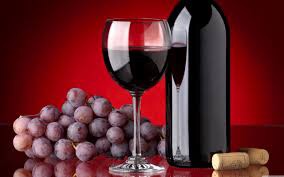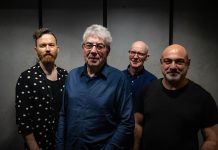Red wine may not as good for you as once thought after a study found that a chemical found in it and in chocolate could be stopping the repair and regeneration of muscles, a new study suggests.
The research from Manchester Metropolitan University (MMU) has found that the compound resveratrol determines whether it acts as antioxidant with anti-ageing properties or has a toxic effect and hinders muscle tissue repair.
The compound has been widely researched for its reputed health benefits as an antioxidant in helping to slow down the ageing process and stop disease.
Antioxidants can reduce oxidative stress and restore mitochondrial function, a cell’s energy centre and promote muscle growth.
But the findings published in Scientific Reports, suggests the picture is more ambiguous because a different dose of the chemical had varying effects on muscle regeneration. Small doses supported cells in the repair process but higher doses had the opposite effect.
Dr Hans Degens, reader at MMU, and Dr Alessandra Bosutti, University of Trieste, Italy, and a former visiting research fellow conducted the research into the potential anti-ageing benefits of resveratrol, which is commonly found in wine, chocolate and nuts.
Dr Degens said: “Stronger muscles and the ability of the muscle to repair damage are important for a healthy lifestyle, especially in older age where muscle decline can have a series of implications for a reduction in our quality of life.
“So we analysed if resveratrol was able to promote the repair of muscle and reduce oxidative stress where free radicals speed up the ageing process.
“Local muscle stem cells undergo a cycle when they repair and ultimately fuse with the damaged muscle fibre. At low doses, resveratrol did help the regeneration. However, if the dose is higher, it doesn’t mitigate ageing from oxidative stress and even hampers the repair cycle.
“The results showed that the effects are dependent on the dose and it is unclear from the equivocal results if drinking wine or eating chocolate would have anti-ageing properties and repair muscle or the opposite.”
Using muscle cells in vitro, researchers tested the cycle of muscle regeneration which starts with the activation of muscle satellite cells and continues with myoblast proliferation, migration and withdrawal from the cell. The final step is the satellite cell’s fusion with the damaged muscle fibre.
Low doses stimulated this satellite cell activation and migration while higher concentrations stopped it, and even had a cytotoxic effect on the cell.
Other resveratrol studies at MMU have shown in mice that resveratrol does neither alleviate the decrease in muscle mass or the reduced ability to adapt to altered demands placed on the muscle in old age.







